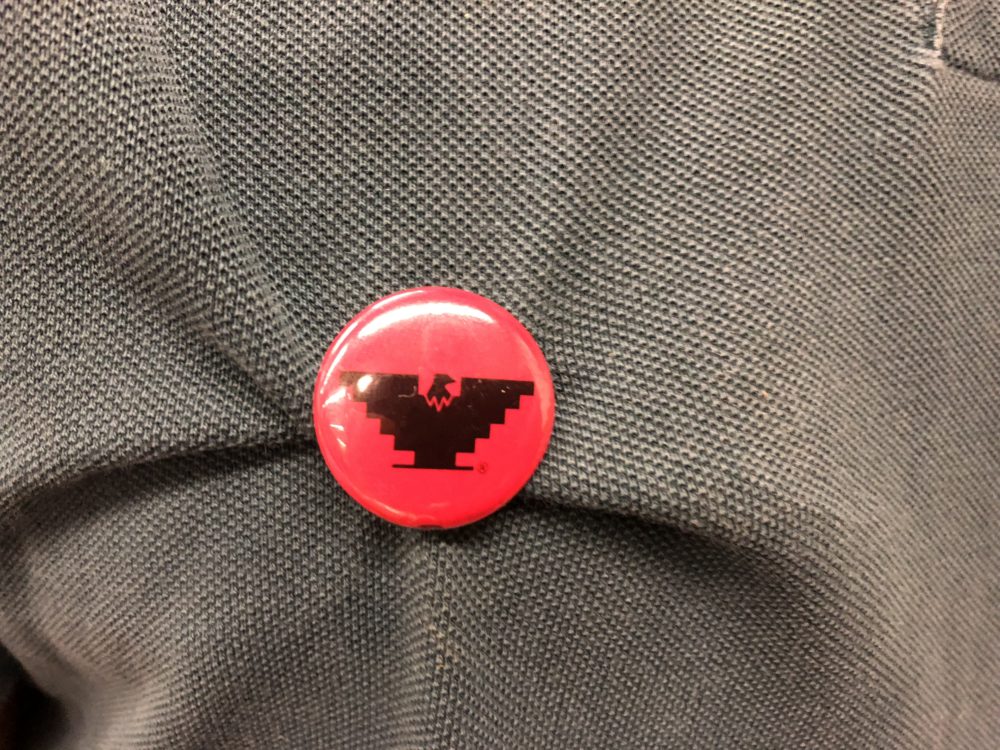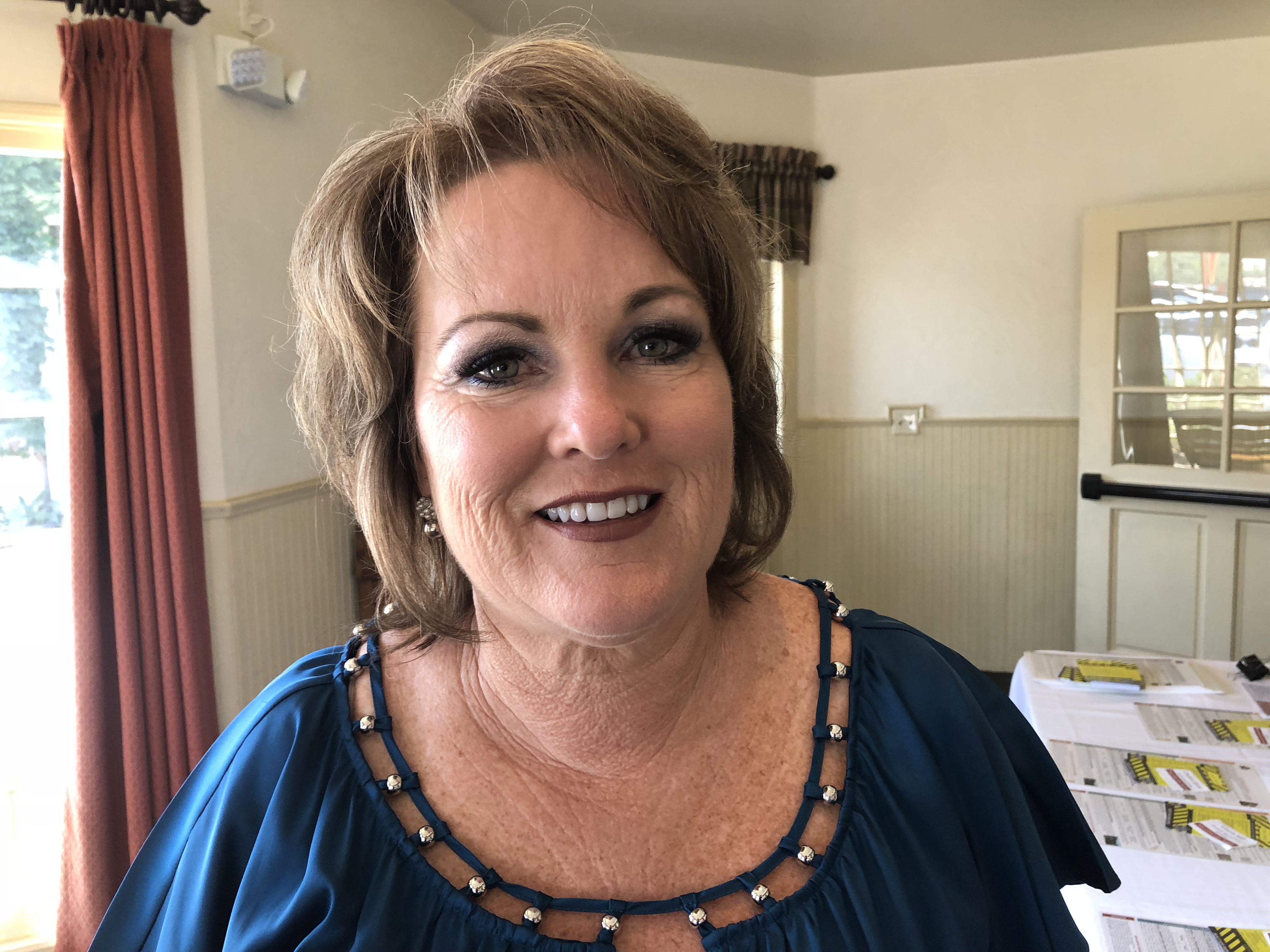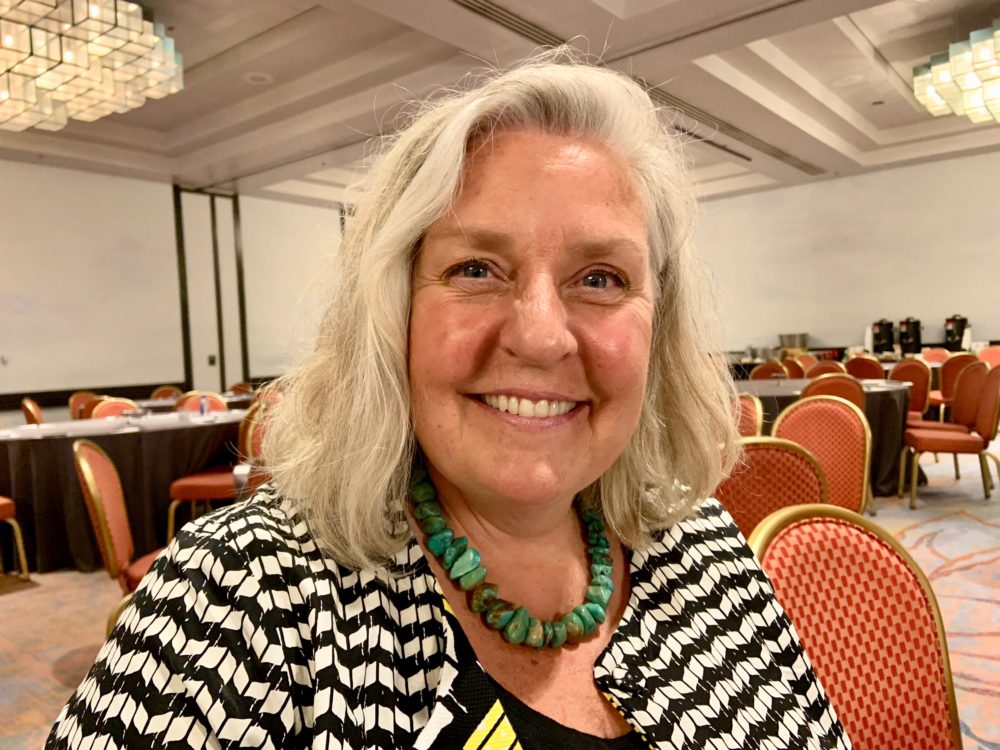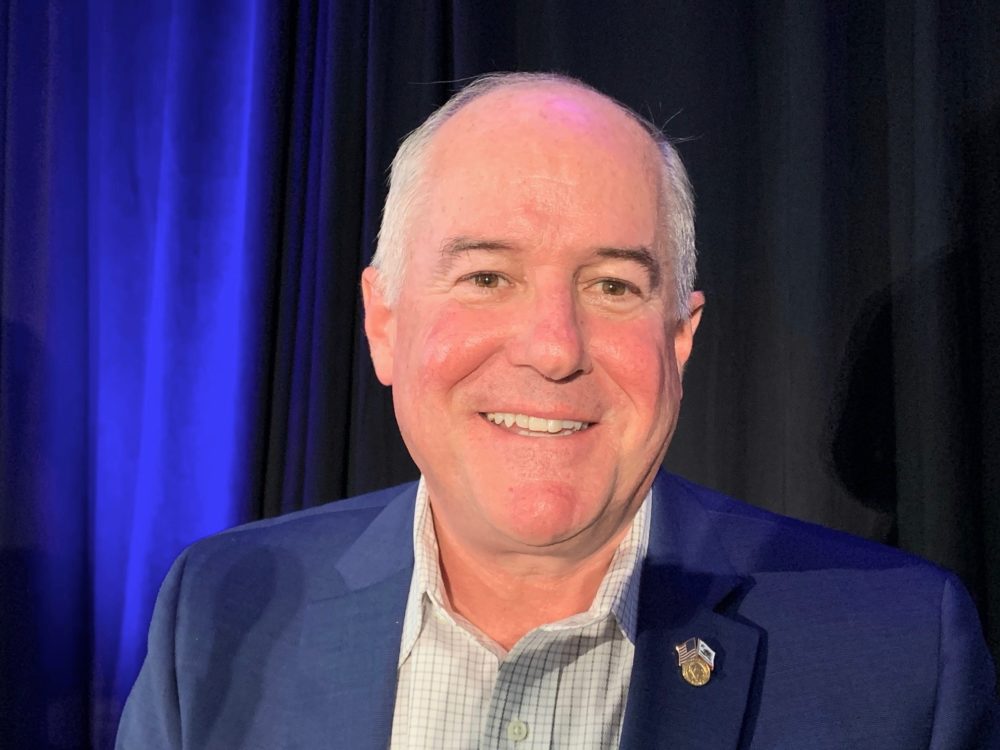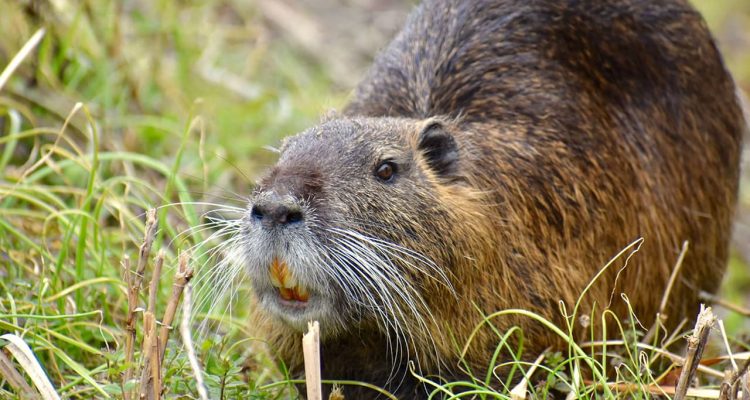Meet Rose Tyron, New CWA President
California Women for Agriculture Welcomes 2020 with New President and Platform
Del Norte County native, Rose Tryon is a passionate advocate for agriculture and has officially stepped into her new role as president of the California Women for Agriculture (CWA). This step up in leadership comes after a decade of involvement with both CWA and its parent organization American Agri-Women (AAW).
“As a young girl, I watched my father struggle to keep our family farm and could never understand why a profession so noble was so difficult to maintain,” stated CWA State President Rose Tryon. “Even as a child, I knew that something had to be done to help farmers, and that eventually led me to join CWA.”
A retired District Attorney Investigator, Tryon specialized in sexual assault and child abuse investigations. She currently resides in Paradise, California with her husband and two dogs and is working to rebuild her home after she lost it to the 2018 Camp Fire. Tryon eventually plans to reopen her business that assists farmers, ranchers and small businesses with business management and regulatory affairs. In addition, she also has her eyes set on executing several goals as CWA’s newest president.
“Rose is a visionary and is totally committed to the mission of the CWA,” stated Past CWA State President and current Federal Legislation Director Carol Chandler. “We are so fortunate to have such an outstanding leader for our all-volunteer advocacy organization.”
When asked about her plans for the CWA, Tryon noted that she’d like to connect members with the California State Women’s legislative caucus to help bridge the gap between the agriculture industry and our state legislators. She also plans to help educate urban neighbors about issues affecting agriculture, as well as continue to help CWA’s mission to uplift women in agriculture.
Over the last ten years, Tryon has served on the AAW Foundation Board for American Agri-Women, has served as a member of the CWA North Valley Chapter, and has taken on several roles within CWA’s State Executive Board. She credits the women she has met through the organization as the reason why she remains so passionate about agriculture and plans to continue to build her relationship with the members throughout her term as president.
“There’s a phrase that our members like to use whenever they describe their involvement with the CWA: we join for the cause, but stay for the friendships,” Tryon noted. “CWA is more than just an organization, we are a family that will fight tooth and nail for the industry we love, but even more so for the relationships we create.”
Tryon joins 12 other women as part of the 2020 CWA Executive Team and has already begun to lay the foundation for some of the change she wishes to implement throughout the next few months. Interested parties are encouraged to visit the CWA’s website at www.cawomen4ag.com to learn more about membership opportunities and community events.


